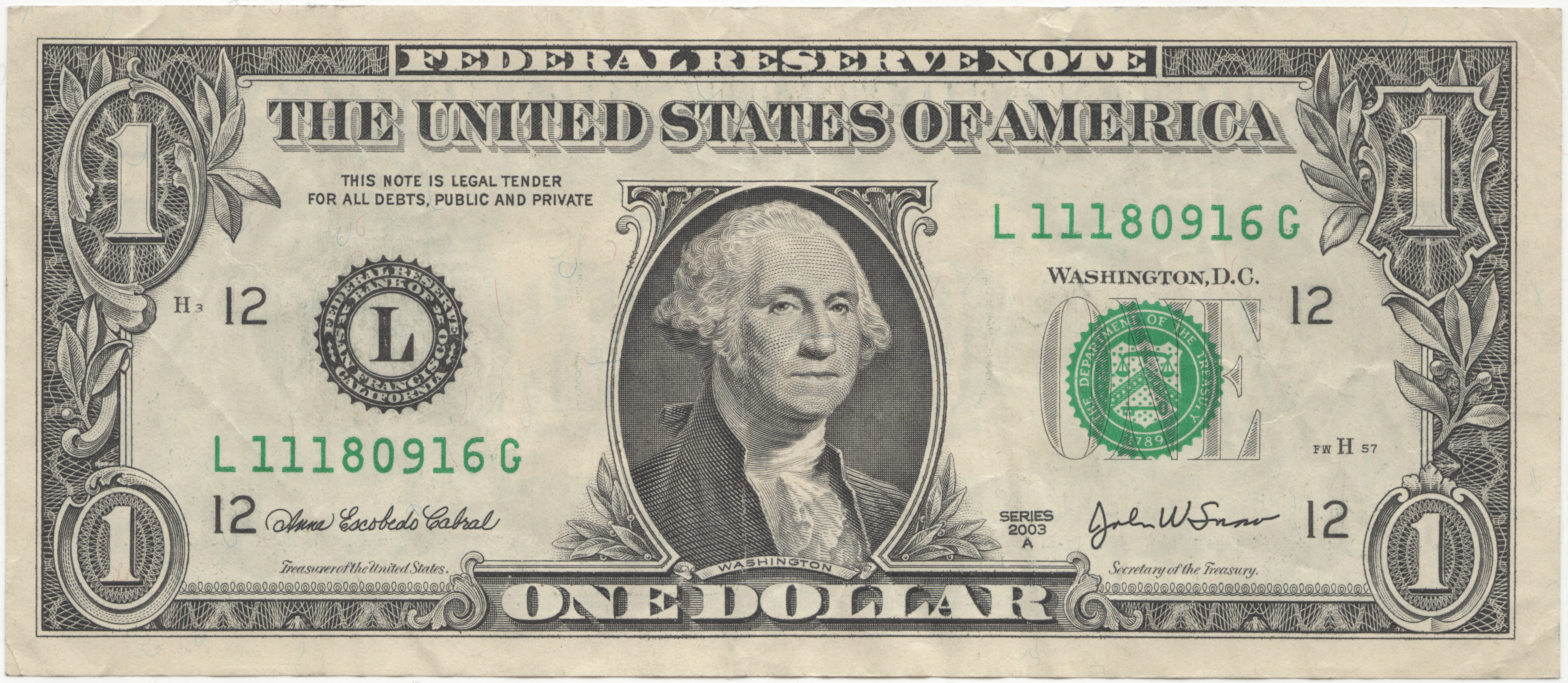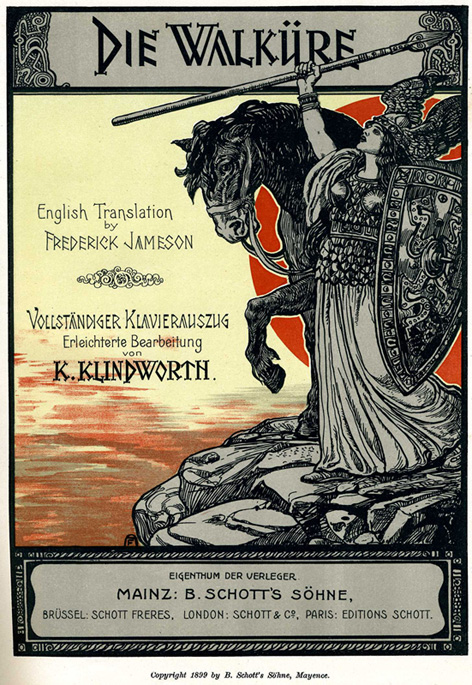 Here's a quiz to perplex your friends sometime when none of you have anything better to do.
Here's a quiz to perplex your friends sometime when none of you have anything better to do.
How many of the guys who have their faces on actively printed United States currency ever went to college? Name who and the schools.
For example, take the two dollar bill. That one doesn't count because it isn't manufactured anymore. Well, not in enough numbers to matter. That's got Thomas Jefferson who went to the College of William and Mary.
This is a good question to amuse a group while you're having a long wait for restaurant service. Here are a few hints to drop if they need them.
Currently the United States prints six types of bills. First figure out what they are. ($1, $5, $10, $20, $50, and $100)
Now figure out whose faces are on those bills. (Washington, Lincoln, Hamilton, Jackson, Grant, and Franklin)- Next figure out which ones went to college and where. If people start to go bonkers you can make it easy and say it was two of them. Think of it: used to be you didn't need to even go to college and could still be so successful the government would put your portrait on its money. Makes me think I was born in the wrong century.
Need one more hint? Okay, one of these an average American should be able to dredge out of memory if they didn't sleep through their high school history class. The other is harder to figure out.
By now you've probably cheated and read the Wikipedia entries.
In case you haven't, the remember-able one is Ulysses Grant, Mr. $50. He got the job as head honcho of the Civil War because he went to West Point. Graduated in the middle of his class, but pretty much everybody who'd gotten better grades had left to fight for the other side. I'll bet that fact did wonders for Union morale.
Alexander Hamilton, Mr. $10 bill, attended Columbia University (actually it was known as King's College back then, but the name didn't seem so fashionable after the revolution so they switched it).
----
Now was that relaxing and mildly amusing? I hope so. Trivia should be crackers and Cheez Whiz for the brain. It's the boxed wine of intellectual activity.
Unfortunately, some Wikipedians get really worked up about how unimportant it is.
 Time to 'fess up: I think trivia can be useful for instructional purposes. Eons ago everybody in my college was required to take a course in music history. So we plodded to class, most of us wishing we could wrangle a way out of it, and plopped ourselves into chairs for an hour every Tuesday and Thursday while our instructor (bless her) tried to get us interested in a bunch of old dead guys. One day she introduced Richard Wagner. Most of the class answered with blank stares. She mentioned the Ring Cycle; still nothing.
Time to 'fess up: I think trivia can be useful for instructional purposes. Eons ago everybody in my college was required to take a course in music history. So we plodded to class, most of us wishing we could wrangle a way out of it, and plopped ourselves into chairs for an hour every Tuesday and Thursday while our instructor (bless her) tried to get us interested in a bunch of old dead guys. One day she introduced Richard Wagner. Most of the class answered with blank stares. She mentioned the Ring Cycle; still nothing.Then she mentioned Bugs Bunny.
Kill the wabbit! Kill the wabbit! Everybody remembered that.
And the helicopter scene from Apocalypse Now. Same tune; that's Wagner.
People were sitting up in their seats now, leaning forward, asking questions, interested. If that's what gets students into a lesson, so much the better. Although that same instructor reported that every final exam, at least one of her students misidentified "The Ride of the Valkyries" as "Kill the Wabbit".
So yeah, I happen to think trivia isn't quite so trivial. I also make an argument on the basis of cultural history but that's a different discussion.
Here's the point of this post though: if you disagree about this and think trivia is trivial, please have the courage of your convictions and don't get worked up about it. I've seen people quarrel for months, curse, run sockpuppets, and finally get sitebanned--all because of stuff that they insist isn't important. Maybe you have strong convictions about what an encyclopedia should or shouldn't be. Okay, I can respect that and agree to disagree. Let's do our best to be polite about it.
Thinking of someone. If you read this you'll know who you are. I like ya, dude. Take it easy.




4 comments:
Isn't the 2 dollar bill still made, just in small quantities? :)
I have suffered through more classes than just about anyone else, going to a school system which had a much heavier set of course requirements than most, a couple of years of summer schoool, many years of music and dance classes, as well as a few college and graduate degrees.
During all those classes, I have had plenty of classroom experiences where I was bored out of my mind. I have sat in many history classes that were just a long sequence of dates to memorize. I have sat in geography classes that were also just exercises in memorizing tedious details. This is not to say that there is no value to learning and practicing memorization; it is often an unappreciated useful skill in current Western education. However, the interesting features associated with the information, the unusual twists and turns, the asides, the strange connections to other knowledge, the controversies; that is, the "trivial" components, i.e., the trivia, are often ignored in the interests of expediency. But the trivia is often what makes the knowledge interesting to students and memorable, and often what makes it useful, rather than some bland cataloguing of material.
As an example, most people learn about William the Conqueror and the battle of Hastings in 1066. But it is the trivial details associated with this story that make it interesting. How many know that William the Conqueror was more commonly known at that time as William the Bastard? (because he was born out of wedlock). How many know that William was grossly overweight and his body exploded at his own funeral, showering the collected mourners with infected bodily fluids and decaying and pungent material? How many are familiar with the fascinating Bayeux Tapestry, that appears to depict the battle, including possibly the death of the Anglosaxon defender, King Harold Godwinson, from an arrow through his eye? How many know that the tapestry depicts Halley's Comet during Godwinson's coronation, frequently a harbringer of doom? How many know that the Godwinsons and other English nobles, themselves descendents of previous Scandanvian invaders, had been distracted by a near simultaneous attack by another group Scandanavian mauraders further north when England was attacked by the Normans, a name that is a bastardization of "Norsemen"? All of this content is somewhat irrelevant to the basic facts, but enliven the account considerably.
Connections to scientific, linguistic, physiological and other loosely connected information, such as etymologies, can seem irrelevant and pointless, but in fact add tremendous value. Not only is it more interesting and engaging for students, and not only does it make it easier to remember the knowledge, but the interrelations and interconnections that are formed in the minds of the students can be tremendously beneficial later when it comes time to make use of this knowledge.
At the opposite extreme, consider the type of education in many madrassas. Students memorize long passages from the Koran, sometimes without even knowing the Arabic language they are reciting. They repeat the sounds, memorized by rote, without any idea of what these sounds mean. Although it is clearly an impressive feat to memorize hundreds or thousands of pages of text in this way, the value to the students obviously is minimal if they cannot interpret the sounds they have memorized. Devoid of meaning, it is just a memory exercise. No synthesis of these facts into new knowledge is possible. The richness of the text is invisible to the students. The layers and semantic depths are inaccessible.
It is all "content", devoid of "worthless trivial details", but also quite sterile. Some might even deem it to be "pointless" and a waste of time and effort. Education represents a massive investment in many of these cultures, which often can spare few resources for such an investment. Unfortunately, the expected return on this sort of investment is very poor. Without "trivia", the knowledge is worth much less than it would be in other circumstances. Students and their societies cannot harness this sort of education in any meaningful way.
So I too am a fan of "trivia". It is fun. It makes the information interesting and brings it to life. It makes it easier to learn and remember. And, most important of all, it makes the knowledge potentially useful. Because the point of learning is not just learning for its own sake, but to give the students tools that they can use, and enable them to synthesize this material into new forms, and to help them understand the world around them. And that is the main value of trivia; it helps forge bridges and connections between seemingly unconnected bits and pieces and random facts.
Did I ever tell you about the time Carcharoth saved [[Infinite monkey theorem]] from deletion?
Someone, who was more anal retentive than the usual Wikipedian, thought that an article entirely about a popular cultural reference could never ever be anything but a list of trivia, & nominated it for deletion. Carcharoth put in a lot of focussed effort on this article at the eleventh hour, & proved that person wrong.
Sometimes you can score one against the marching morons.
Geoff
I, for one, welcome our quasi-autistic overlords.
:)
Seriously..I agree that sometimes (even often) people go overboard in removing trivia and generally sucking the "life" out of articles in order to conform with various standards.
However, I credit many of those people with establishing the very consistency that keeps Wikipedia in Google's top 10 and on the tip of everybody's tongues. Yes, it's sometimes a shame when stuff that "everybody knows is true," but that is not documented in an appropriate source, gets deleted; but I think the people who do that stuff play an extremely valuable role in the project, even if they do need to be discouraged on a specific point now and then.
Post a Comment